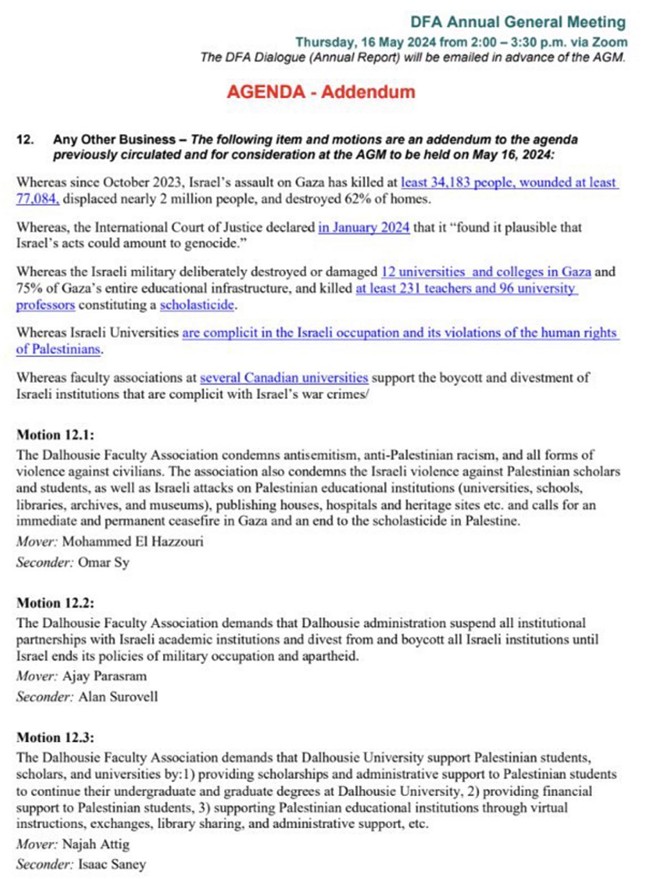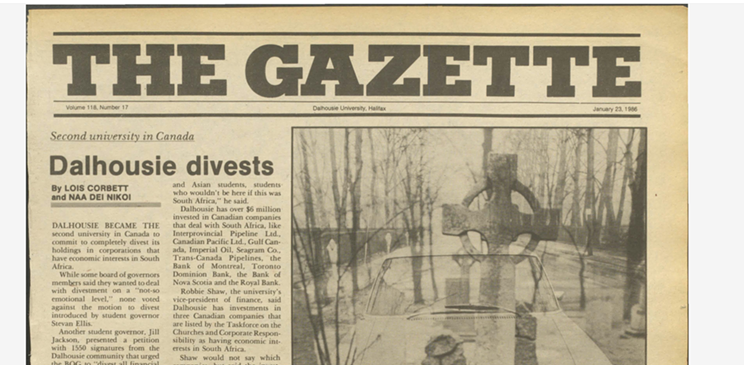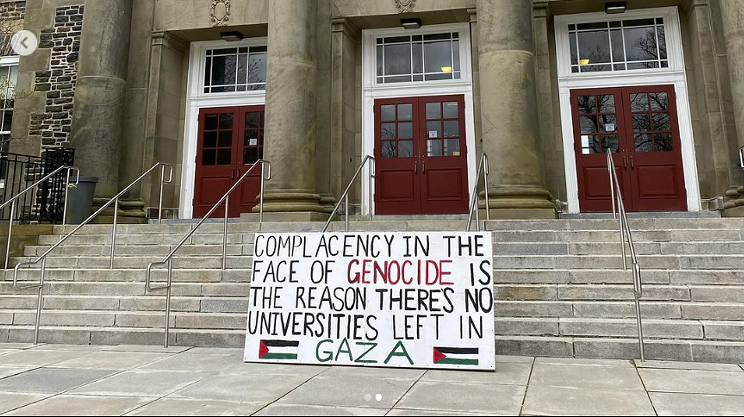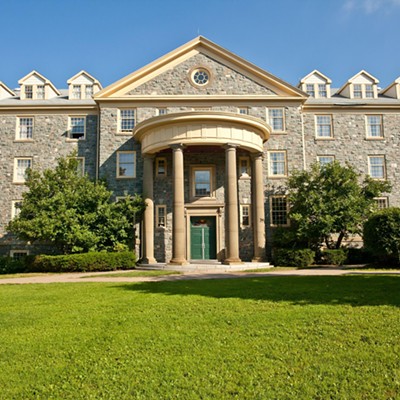Tents spread in front of the administrative building on Dalhousie’s main Studley Campus are still standing into convocation week two. The zone of tents has been renamed Al Zeitoun University by the coalition of students occupying Dal’s front lawn.
“Students for the Liberation of Palestine - Kjipuktuk (Halifax)”–or “SLPK”–is a coalition of students from Dal, SMU, King’s, NSCAD and MSVU united in place and message. On the SLPK Instagram account, the group says they’re joined in the “struggle against [their] respective universities and their complicity in the occupation of Palestine,” and they call on their university administrations “to immediately disclose and divest” investments tied to Israel.
Last year, student journalist Joud Ghazal published an article in the Dalhousie Gazette on Dec. 1, headlined “Dalhousie Keeps Failing Palestinian Students.” Ghazal’s article lists Dal’s investments of “millions of dollars in Israeli weapons manufacturers that supply the Israeli Occupation Forces,” including more than $706,000 to ICL-Israel Chemicals Ltd., which has been said to supply white phosphorus to Israel’s army.
Ghazal invokes Dal’s divestment protocol in the 1980s, when, “along with other education institutions, [Dal] divested holdings in three companies with links to the South African apartheid regime,” saying “this applied economic pressure and isolated South Africa economically, which was vital to the apartheid regime’s demise.”
Ghazal writes that Dal should “follow their own precedent…and divest their holdings in companies that sustain Israeli apartheid and occupation.”
Ghazal is calling upon a headline from past colleagues–one which students at Al Zeitoun University are asking for today.
January 23, 1986. “Dalhousie divests,” reads the top story of the Dal Gazette’s front page.
In that article, student reporters Lois Corbett and Naa Dei Nikoi wrote that Dal has become “the second university in Canada to commit to completely divest its holdings in corporations that have economic interests in [apartheid] South Africa.”
This was months before Canada’s government, under then-prime minister Brian Mulroney, would officially adopt sanctions against South Africa’s apartheid government. When Mulroney died this year, he was remembered differently in various media outlets for how effectively opposed his government was to the apartheid regime, or wasn’t.
At Dal, William Andrew MacKay was serving as the eighth president of the university in January 1986. At a board of governors meeting on Jan. 21, 1986, student governor Stevan Ellis introduced a motion which read:
“In light of the continuing system of apartheid by the government of the Republic of South Africa, which we find morally reprehensible and has been declared a crime against humanity by the United Nations, and in response to the call from the leaders of the people of South Africa;
“Nelson Mandela (African National Congress), Allan Boesak (President World Alliance of Reformed Churches), and Bishop Desmond Tutu (Nobel Peace Prize Laureate) and a call from our own minister of external affairs, the right honourable Joe Clark, and upon the urging of the Dalhousie Student Union, The Dalhousie Faculty Association and the Senate of Dalhousie,
“I move that the Board of Governors of Dalhousie University initiate steps to completely divest from corporations with economic interests in the Republic of South Africa.”
Ellis’ motion was amended to require an interim report on the steps for complete divestment by the next meeting of the board, and passed without dissent. The board established a committee to oversee divestment with four members appointed by the board, two appointed by senate and two appointed by the student union.
On March 25, 1986 the board of governors received a report from this committee, listed in the minutes as the ad hoc committee on South African Investments, and recommendations were read into the meeting, as “holdings in the following companies, which have interests in South Africa, be sold: Canadian Pacific Limited, Exxon and Citicorp.” The recommendation was approved by the board and a final report from the committee was published in 1987-88 which includes divestment from these three holdings.
The Coast has requested access to this file from the Dalhousie University Archives.
Last month, the Dal Student Union echoed Ellis and the 1986 board of governors when it passed an amended motion brought forward by the Dal Palestinian Society calling for the union to “stand in solidarity with the Dalhousie Palestinian Society and groups in Appendix A to urge that Dalhousie University immediately cut ties with and divest from corporations…listed in Appendix B,” which includes more than 10 companies described as being “complicit in the ongoing genocide of Gaza.”
The Dal Faculty Association passed motion 12.1 and 12.2 at their annual general meeting on May 16, 2024. Motion 12.2 calls for Dal to “suspend all institutional partnerships with Israeli academic institutions and divest from and boycott all Israeli institutions until Israel ends its policies of military occupation and apartheid.”

Dal’s board of governors will next meet on June 25 for their annual meeting.
In the meantime, the tents still stand. The Dal Palestinian Society has published an open letter to the current Dal administration here, which, in part, calls on Dal to “disclose to students and the public the full list of the university’s financial and academic ties, including those with the state of Israel,” and to “completely divest from all companies on the Boycott, Divestment, and Sanctions (BDS) list, and establish a divestment committee made up of 50%+ students to oversee this.”











